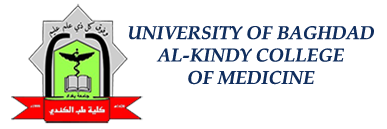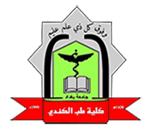Alkindy College of Medicine, University of Baghdad, organized a training workshop on nanotechnology and its applications in medicine. The workshop was presented by Dr. Shatha Salah, under the supervision of Professor Dr. Mohammed Shahab Al-Aidani, Dean of the college.
The workshop began with an introduction to nanotechnology and its principles. Dr. Salah explained that nanoparticles are typically used for drug delivery, and that they can be designed to carry drugs or other therapeutic substances to specific areas of the body.
Dr. Salah also discussed the potential benefits of nanotechnology for cancer treatment. She noted that nanoparticles can be used to target cancer cells more precisely, which can improve the effectiveness of treatment and reduce side effects.
In addition to cancer treatment, nanotechnology has the potential to improve other aspects of health care, such as diagnosis and prevention. For example, nanoparticles can be used to develop new diagnostic tests that can detect diseases earlier and more accurately.
Here are some specific examples of how nanotechnology is being used to improve cancer treatment:
Doxorubicin, a nanoparticle-based drug, has been used to treat cancer since 1995. Doxorubicin is a chemotherapy drug that is used to treat a variety of cancers, including ovarian cancer, multiple myeloma, and sarcoma carcinosarcoma.
Nanoparticles can be used to deliver immunotherapy drugs to cancer cells. Immunotherapy drugs work by stimulating the body’s immune system to fight cancer cells. Nanoparticles can be used to deliver these drugs more effectively and with fewer side effects.
Nanoparticles can be used to improve cancer imaging. Nanoparticles can be coated with fluorescent markers that can be used to visualize cancer cells in the body. This can help doctors to diagnose cancer earlier and to track the effectiveness of treatment.
Nanotechnology is a rapidly developing field with the potential to revolutionize cancer treatment. As research in nanotechnology continues, we can expect to see even more advances in the years to come.















